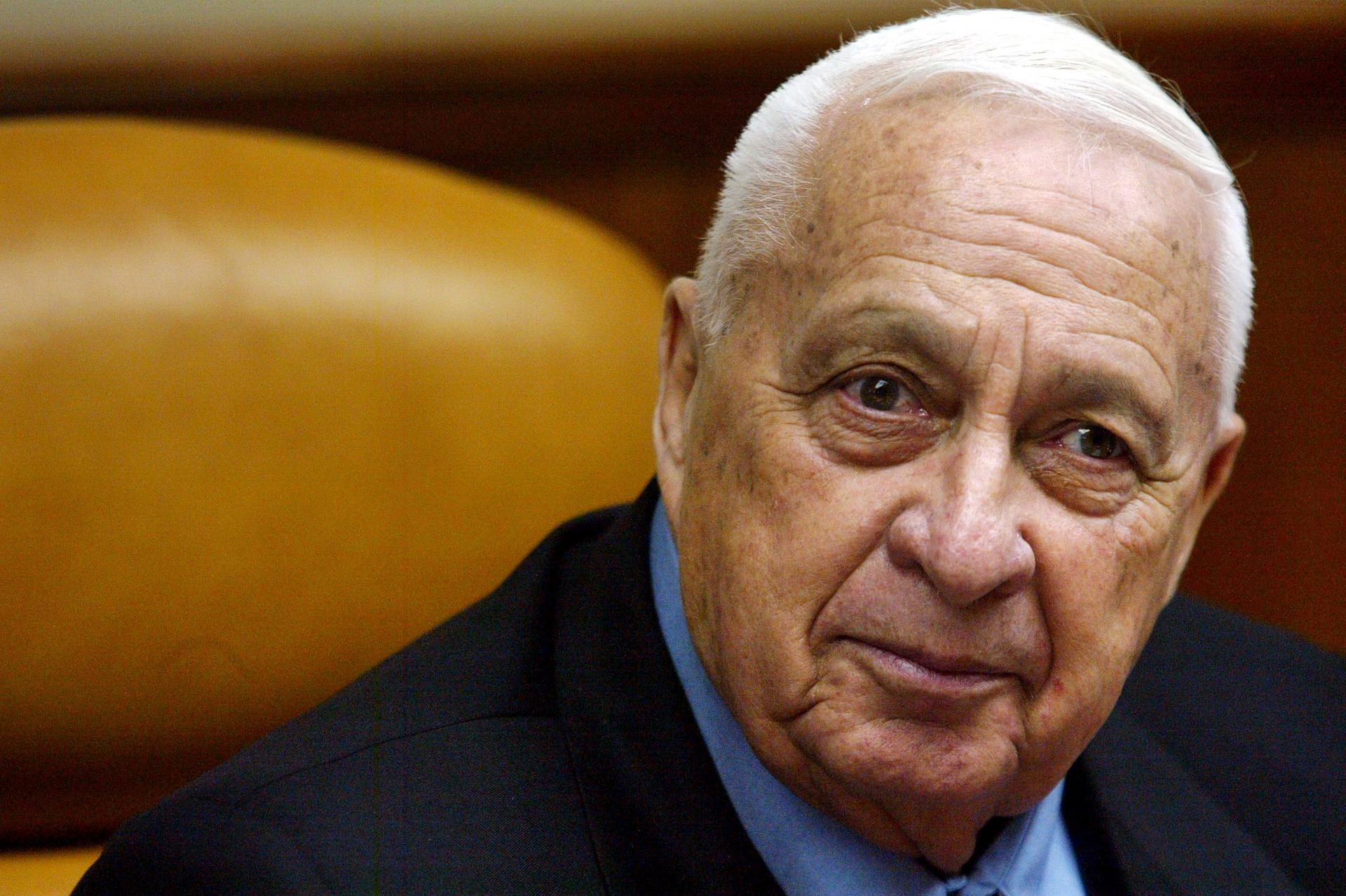Controversial Israeli leader and former Prime Minister Ariel Sharon has died
Former Israeli Prime Minister Ariel “The Bulldozer” Sharon in Jerusalem August 9, 2005.
Ariel Sharon is one of those figures who provoked strong feelings. You love him or hate him. He's a war criminal or a hero.
But whatever the thoughts are, few individuals in recent memory who have had as much of an influence on the course of history.
Sharon first distinguished himself in 1948 during Israel's War of Independence. He led an infantry company and was wounded in the famed battle for Latrun, a fortress on the road to Jerusalem. There's a monastery there now that looks out over the battlefield.
Sharon's biography begins zigzagging not long after Israel was created. In 1953, he created and ran an elite military group known as Unit 101. It was a special branch of the Israel Defense Forces (IDF) charged with launching retaliatory strikes against Palestinians. But Unit 101 is widely blamed for what was essentially said to be the massacre of innocent women and children in a village called Qibya, and the unit was dissolved not long after it was created.
A series of military confrontations — mostly victories — followed: the Arab-Israeli War of 1956; the Six-Day War, in 1967; the War of Attrition in 1969; a battle in Gaza with the Palestine Liberation Organization (PLO) in 1971 and what's known in Israel as the Yom Kippur War, in 1973.
But Sharon is best known, and most reviled among many in the Arab world, for his actions as Israeli Defense Minister in 1982. That year, he launched a controversial and much-contested invasion of Lebanon. The attack was intended as an operation to drive PLO leader Yasser Arafat and his forces out of Beirut. The PLO had routinely instigated attacks against northern Israel. But the Israeli invasion led to a decades-long military occupation. And it has scarred relations between Israel and Lebanon ever since.
During the initial months of that invasion, Christian factions in Lebanon who were allied with the Israeli military attacked two adjacent Palestinian refugee camps in Beirut, called Sabra and Shatila. The IDF didn't instigate the attacks, but, as the group controlling that part of Beirut, they didn't stop them either. The incident was resurrected not long ago in the animated Israeli movie, "Waltz With Bashir." At one point in the film, we see an Israeli journalist explain how he woke Sharon up late one night in September, 1982, to tell him that Christian militias were massacring Palestinians.
The Defense Minister said, in essence, "it's their fight."
But the UN and an Israeli panel both disagreed. The Israeli commission found Sharon negligent in how he handled the matter, and he was removed from his position in 1983.
But Ariel Sharon bounced back as a politician.
He managed to stay on within the Israeli government, serving as the minister of Industry and Trade from 1984 to 1990. As the minister of Housing and Construction from 1990 to 1992, Sharon oversaw a tremendous wave of real estate development, building 144,000 new apartments — in large part to satisfy a new wave of immigrants coming to Israel from the Soviet Union. He often told frustrated western diplomats that he wasn't "expanding" settlements, merely "filling them out," that is, building in areas that had been slated for development for decades.
Sharon again gained worldwide notoriety in 2000, when he made a controversial trip to what Jews call the Temple Mount and Muslims call the al-Aqsa Mosque. That trip is credited by some with sparking what became the second Palestinian Intifada. The violence he may have stoked helped get him elected Prime Minister in 2001 as leader of the right-wing Likud Party.
Sharon stunned his supporters, and the country as a whole, when he pushed for the unilateral withdrawal of all Jewish settlements from Gaza and a few in the West Bank, which he pulled off in the summer of 2005.
Even many Jews who didn't much care for the settlements found it gut-wrenching to see synagogues abandoned and later bulldozed as Israel pulled out.
In that year, he left his Likud Party and established the centrist Kadima Party. He appeared headed for re-election as prime minister, when he suffered a major stroke in 2006. He had been in a coma since then. He died today at age 85.
We want to hear your feedback so we can keep improving our website, theworld.org. Please fill out this quick survey and let us know your thoughts (your answers will be anonymous). Thanks for your time!
